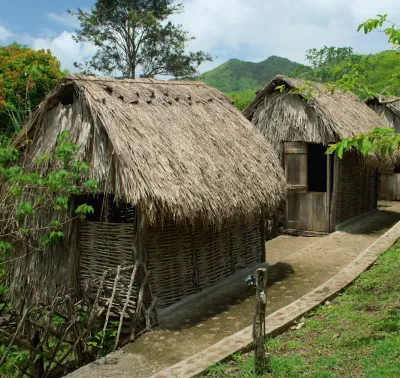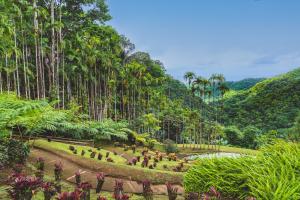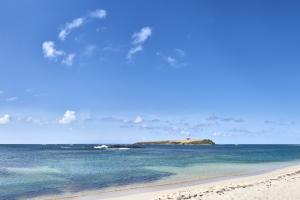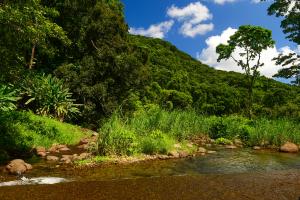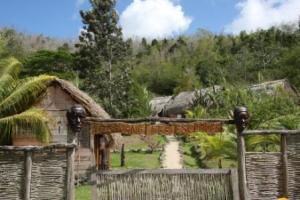
- Cruise
- Travel agency and TO
- Press
- MICE
- Blog
in Martinique
Rum, a true emblem of Martinican savoir-faire


Premium quality rums known the world over
Firstly, Martinique rum is made from fresh-pressed sugarcane, unlike other rums which use molasses (the residue from the sugar production process). The method used to make Martinique rum guarantees superior quality. The cane is grown on mineral-rich volcanic soil, giving a unique taste and incomparable quality to the rum.
Martinique rum is also column distilled, a technique that preserves the product’s rich aromas. This method produces lighter, more fragrant rums than traditionally distilled rums.
Finally, there is the aging process, which is crucial in the production of Martinique rum. The rums are aged in French oak barrels, giving them aromas of vanilla, coconut and dried fruits. The most prestigious rums are often aged for several years, or even decades, to achieve unparalleled aromatic complexity and roundness.
Thanks to the development of this rare savoir-faire, some 15 different professions related to rum-making still exist today, combining technology, tradition and the transfer of knowledge. All of this ensures that the rums of Martinique taste exceptionally good. By the way, isn’t it time for a little drink?



It’s Rum O’Clock
Taste the history of Martinique rum at our distilleries
Martinique rum is rooted in the culture and traditions of the island. It is a true symbol of local craftsmanship and savoir-faire. By visiting the island’s rum distilleries, you’ll discover the secrets behind the production of Martinique’s rums while sampling a taste of local culture. Each has its own well-kept secrets and offers a different and exclusive visitor experience.


Cheers ! - Lasanté -
Cheers ! - Lasanté -
Cheers ! - Lasanté -
Cheers ! - Lasanté -
Cheers ! - Lasanté -

Highly controlled origin
Martinique rum, an iconic product protected by an AOC
Obtaining the AOC label of origin or Appellation d’Origine Contrôlée as it is known in French, was a long and essential process to protect and promote Martinique’s emblematic drink. Today, Martinique’s rums enjoy worldwide recognition and are appreciated for their quality, finesse and authenticity.
The history of AOC Martinique rum began in the 1970s when Martinique rum producers realized the need to protect their treasure. At the time, rum produced in other countries was often sold under the name “rhum de Martinique”, undermining the quality and reputation of genuine Martinique rum.


A unique
SAVOIR-FAIRe
It wasn’t until 1984 and the creation of the Institut National des Appellations d’Origine (INAO) that quality food products were given a protected status. In 1994, Martinique’s rum producers applied for AOC status, claiming recognition for the specificity of the sugarcane used, the production method and the typicality of the rums.
After several years of procedures, Martinique’s rums were finally awarded their AOC in 1996.
Hurray! This official recognition enables producers to protect the status of Martinique rum, guaranteeing quality and authenticity. This unique spirit is now recognized the world over as an exceptional product, reflecting the richness and diversity of Martinique’s culture. Martinique’s AOC Rum Agricole undergoes drastic controls, from the cane fields to the glass.

rum Different types of Martinique rum
Annual Rum Production
Annual rum production in Martinique is close to 10 million liters.
Number of Distilleries
Martinique is home to some 15 or so distilleries, each producing its own brand of rum.
Research Central
Martinique has a technical center for cane and sugar known as the CTSC. This research organization works with the industry to select AOC cane varieties and develop techniques.
Rum Agricole
Martinique’s specialty, rum agricole, accounts for around 90% of the island’s rum production.
The AOC
Martinique rum has had AOC (Appellation d’Origine Contrôlée) status since 1996, guaranteeing the quality and authenticity of the product.
Exports
France, Europe, the United States and Canada are the main export markets for Martinique rum
Martinique with a big
M


